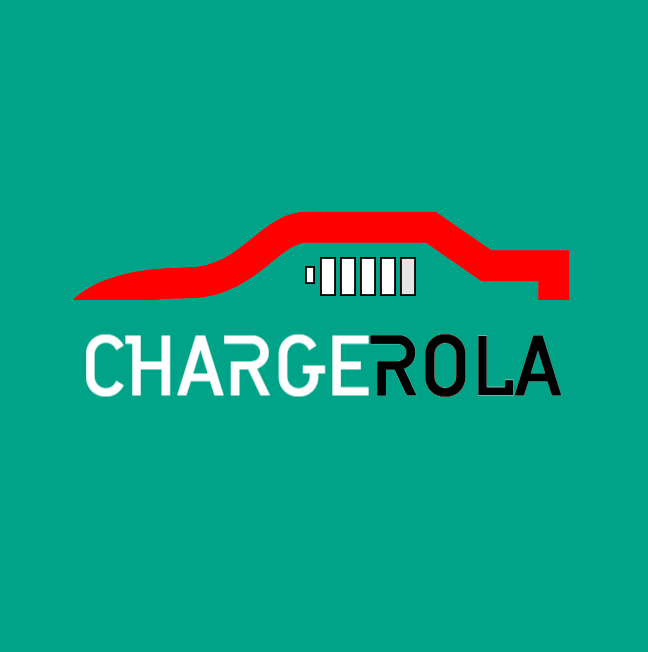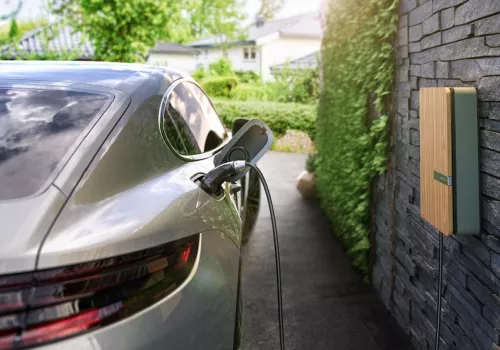
New to the world of electric cars and wondering if an EV charger is right for you? Find out how long it takes to charge an electric car and learn how to work out the charging time for your electric vehicle with this guide to charging at home.
Not only can home EV chargers save money with the car at home, but charging points make life much easier, especially if they have smart functionality.
If you’re thinking of becoming one of a growing number of EV drivers, this guide will help.
The amount of time needed to charge an electric car can vary just like your mobile phone.
It depends on how empty the battery is (it will initially charge faster the more empty it is) and how fast the charger you’re using is.
Here are the typical speeds you can expect from different types of electric car chargers.
How many miles per hour does a home charger add?
A standard UK three-pin plug (up to 3kw)
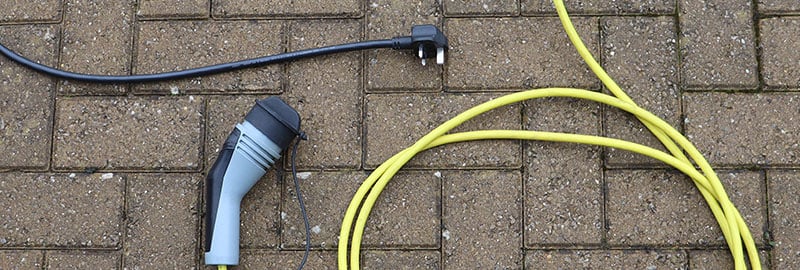
Charging using a typical home plug socket will add about 10 miles per hour.
It’s useful to have a three-pin charging cable as a backup charging option with the car at home, but using a domestic socket is much slower than dedicated electric vehicle chargers.
Charging your electric vehicle regularly using a typical home socket (three-pin plug) can also cause the plug socket to wear out faster.
There are also other problems with using a slow charger like this; unless you have a dedicated outside plug socket it may mean leaving the front door unlocked all night for the car’s battery to be replenished.
A dedicated home charger (7.4kw)
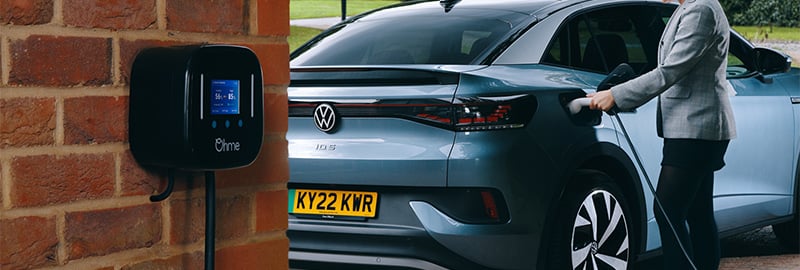
The typical single-phase home charge point will add about 30 miles per hour of charge.
A 7.4kW charge point is our recommendation for home charging – this is more than fast enough for most electric vehicle drivers as you will usually “top up” your battery for a few hours overnight with the car at home.
Home installation is pleasingly simple too.
Technology is improving, with electric cars’ batteries possibly becoming a storage of electricity that can eventually feed back into your home’s energy supply.
Using the car’s battery capacity is a good way to manage energy use going forwards. Talk to one of our friendly team about what features a home charge can have.
A dedicated three-phase home charger (up to 22kw)

A three-phase home electric car charger is capable of adding around 50-60 miles an hour, but most residential properties do not have a three-phase connection and cannot support these chargers as a result.
Most electric vehicle drivers won’t really benefit from a charger with a three-phase connection either. Find out why in this guide to three-phase chargers.
This is why charging an electric car doesn’t take as long as you think
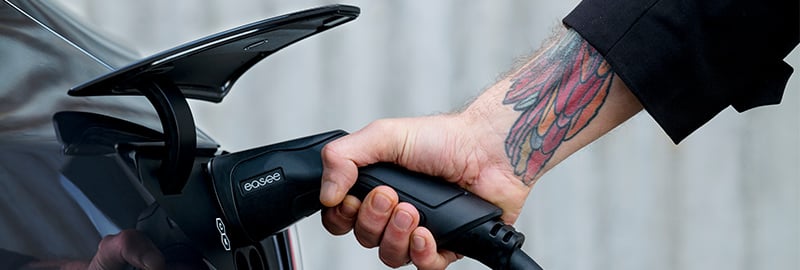
If you were to charge an electric car from completely empty to full, then it’s true it would take a long time in many cases. But this will hardly ever happen, if at all.
Think about how you charge your mobile phone – it’s really a case of top up charging. You probably plug it in overnight when it still has plenty of charge left.
When you wake up, it is full again and you continue to use it as normal. But did you think about how long it took to charge fully while you were sleeping? We’d guess not!
Home charging an electric car is extremely similar. Most of the time you will be top up charging the battery overnight to recoup the miles you used during the day.
Occasionally you will drive a bit further, so you’ll need to use your charger a bit more or you’ll need to charge during the day once in a while.
But most of the time you won’t think about it – it will become a habit to plug in your electric car at night, charge it up a little, and wake up to a full battery. Electric car charging is that easy!
The good news is that with off-road parking, home charging points can be simply integrated into your home’s power supply.
You will also find that charging will take longer below 15 per cent of the battery capacity and 20 per cent below a full battery. In these two areas, the rate of charging the battery for EV owners will decrease somewhat below the maximum rate.
How long will my electric car take to charge?
If you still want to work out how long your electric vehicle will take to charge from empty to full, then you can do it with the simple calculation below:
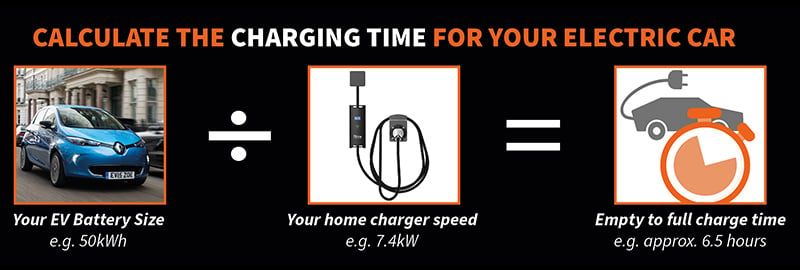
Each electric vehicle will charge at different speeds according to its onboard charger, while the amount of charging time will depend on the size of the battery as well as the charging speed.
For example, an electric car with a larger 64kWh battery will normally take longer to charge from zero to full compared to a 32kWh battery simply because it is bigger.
However, it is worth pressing that other factors, such as the weather will affect how much range you will have, as well as the charging speeds.
Because of the way the battery in electric vehicles works, colder weather will make charging speeds slower.
You will also find your driving range will also be smaller, mores if you put more strain on the car battery via using the heating system.
How long does it take to charge an electric car using public charging points?
Electric car drivers will find that charging speeds will vary depending on the charging point and the car they are using. Dedicated service stations for electric cars will have a wider range of chargers than, say, public car parks. However, the rolling out of rapid charging is increasing with dedicated charging hubs at motorway service stations, for example.
At a destination charger
Destination charging is an overnight charging point at the end of the day – these will typically be a charger at a hotel, bed and breakfast or wherever you’re staying for the night – recharging your own battery! Charger power will vary from place to place, but you should be able to find out what connector and speed the charger is when booking a hotel.
Fast charging is common at hotels, though you may find the maximum charging rate will vary.
Other locations that come under the definition destination charging are places such as shopping centres, workplaces, offices, car parks and restaurants.
You’ll find a lot of places offer fast charging and rapid charging, allowing you to replenish battery capacity while doing more fun things. However, don’t have too much fun – overstay the charging bay’s allowed time and you may face a fine for misusing a public charger.
At a rapid charger
There are several different types of AC and DC charging – fast, rapid and ultra-rapid; these different chargers recharge with different kilowatt hours.
A fast charger (AC) is defined as charging between 7kWh and 22kWh.
Rapid charging using AC ids defined as 43kWh, while a rapid charger using DC has a charging rate in advance of 50kW.
If you have a Tesla model you’ll find that the Supercharger network has a dedicated charger that will work between 120kW and 250kW. A rapid charger described as Ultra Rapid DC will work at 100hWh+.
It’s important to remember that although some rapid chargers have high capabilities, your car may not be able to reach these speeds due to its battery size and battery life.
Once again, cold weather may play a part in diminishing your optimum charge rate, even on rapid chargers.
Test Drive the EV lifestyle without buying one. Just use this app.
Don’t yet own an electric vehicle but want to “test” what it would be like to live the electric car lifestyle?
You can see how often you would need to charge an electric car using your current petrol or diesel vehicle by downloading the EV8 switch app (Available on Android and IOS), which analyses the journeys you travel in your ICE (internal combustion engine) vehicle to provide useful insights such as how much you would be spending on charging if you were to switch to an EV.
